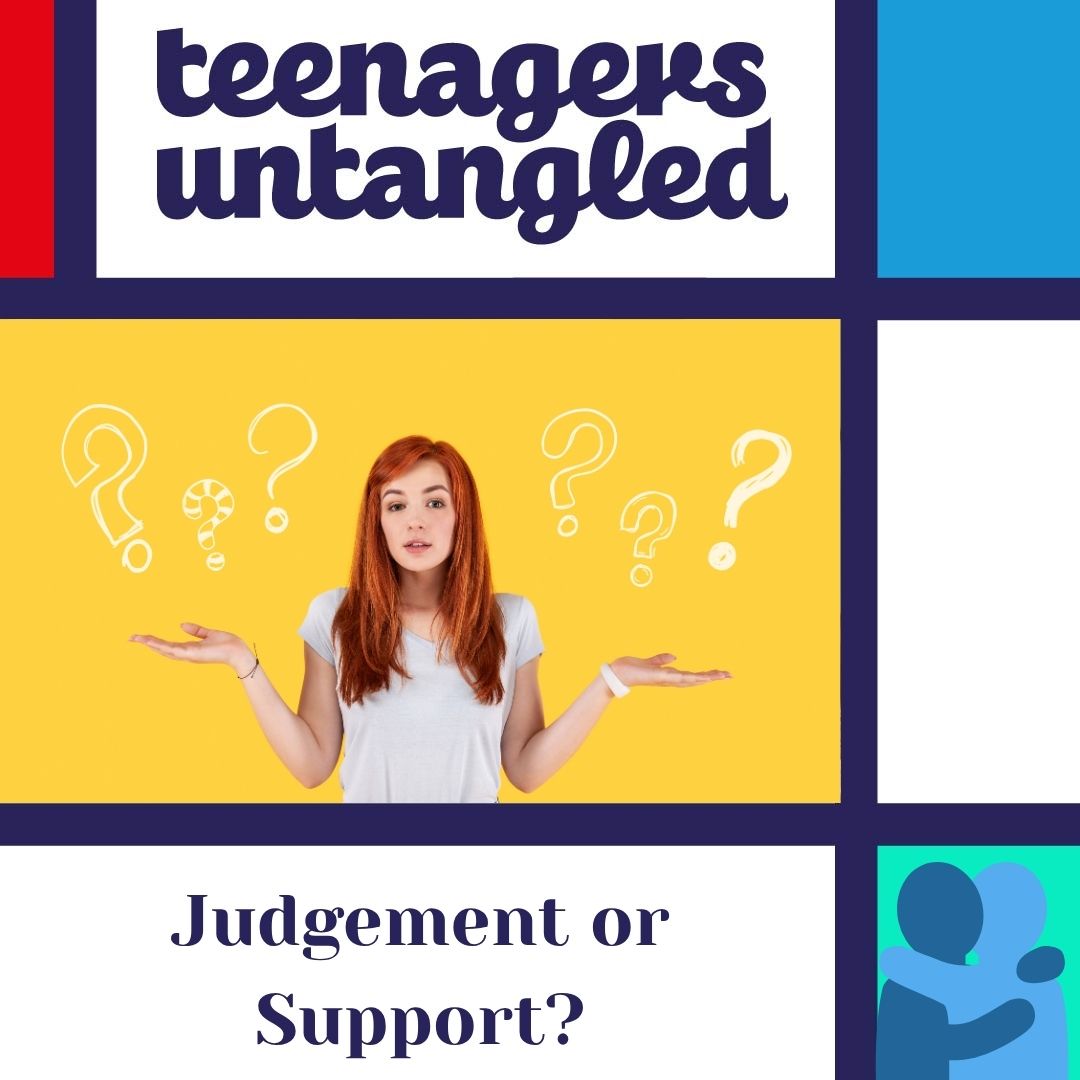Criticism and Judgement of our Parenting is Inevitable

But can we turn it into support?
In my latest episode I talk with Susie about the level of judgement we feel as parents, the shame and fear it evokes, and how much it affects our ability to reach out and gain support. What I find interesting is that fear can also stop us stepping in when instinct tells us we should.
I read a Thread this morning by a woman who'd witnessed a mother screaming at her son and dunking his head under the water at a public pool. She didn't know what to do, but she knew it was wrong. She was right to be concerned; her instinct was spot on, but she felt stuck and unsure of herself. That instinct is designed to work in communities.
It reminded me of one Clarkson's Farm episode when the sow kept lying on her piglets, killing them. Caleb made the point that if she wasn't isolated in her own pigloo, but penned in with a lot of other sows, the other mums would step in and sort her out. This is nature in action.
The problem is that we’re not really operating in those communities anymore. Judgement is a vital tool for preventing harm, and it’s very important in parenting, but it’s best done in smaller community groups where empathy and support can be demonstrated.
Instead of this sort of judgement, we seem to be leaning towards a 'safer' form which is public humiliation for generic behaviour that's perceived to be wrong but has little context.
Kirstie Allsopp loves raising sticky topics and a recent post on X says
‘I’m staying in a hotel in Switzerland, just had breakfast next to an English couple with one child, probably aged 5, he ate his breakfast wathing an iPad on the table in front of him. I know this topic is a dangerous one but when are people going to wake up to how wrong this is?’
Berating a family on social media for putting an iPad in front of their child whilst eating out can be used to improve awareness and public dicsussion, but why chose to humiliate a specific family when you have no context?
Of course, she has a point. Digital child management is rife, but I’d argue the real question is why and what can we do as a society to tackle it rather than simply shaming parents?
It’s so much better to start with curiosity if we want real solutions. Why does that parent feel the need to offer the child a device? What does it say about our society that they are scared to allow their child to be a child in public? Does that child have special needs? There could be myriad reasons that are unseen, many of which make perfect sense.
If we see a scenario and have better suggestions for that scenario then maybe make them instead of shaming the parents. We can start with compassion 'Excuse me, I just wanted to say that used to really struggle to find downtime and I know it can be embarrasing when out in a restaurant if your kid is noisy, but I just want you to know that we don't mind if they make a noise. Do you want to know the game I used to play with my child to keep them occupied? It’s so much fun.'
The problem is that when we make a suggestion we may find that our obvious solution isn’t a solution to their particular situation at all, and that's why people prefer to judge and shame in a way that's difficult to defend against eg on social media.
The deeper problem is that this level of judgement, without offering ‘on the ground’ solutions and support, is fuelling a culture of perfectionism, shame and fear.
Here’s a suggestion: Let’s start by asking
'Why does this matter so much to me?',
'Do I have the full picture?'
and 'What would be the best way to help this person?'
If we pause and ask these questions we'll discover that judgement is mostly about our own issues, mostly done without having a full picture, and rarely done thinking about how to actually support the person we're judging.
Listen to the full episode here
TOP TIPS SHARED IN THE EPISODE:
1. Lead with Empathy, Not Authority
Start by acknowledging how hard parenting can be."I know how tough it is—I've been there too." This creates a shared experience, not a hierarchy.
2. Ask, Don’t Assume
Instead of diving in with advice, invite the conversation:
"Would it help if I shared something that worked for me?"
"Are you looking for suggestions or just someone to listen?"
This gives them control, which preserves their dignity.
3. Share, Don’t Instruct
Frame advice as personal experience or something you've come across—not a prescription:
"What really helped us was..."
"I read something interesting the other day about how teens..."
Avoid “should,” “always,” or “never” statements.
4. Validate Before You Advise
Before offering tips, show you understand their situation:
"That sounds so frustrating—I can see why you're worried."
Validation lowers defensiveness and opens them up to ideas.
5. Focus on Curiosity, Not Criticism
You might say:
"Have you noticed if she gets more upset when..."
"Do you think he might be reacting to...?"
This invites reflection rather than implying fault.
6. Know When to Just Be There
Sometimes advice isn’t what they need—just a calm presence or someone to say:
"You're doing better than you think."
All of this said, if it’s an instict it might be absolutely spot on eg a child being berated by an adult and having their head dunked under water. I’ve frozen in the past too when I’ve witnessed things that worry me. Let’s all try to get better at stepping up and creating a community that’s real rather than being brave and ‘smart’ from behind our computer screens.
And yes, I’m fully aware of how ridiculous that sounds from someone tapping away at a keyboard.
What kind of judgement have you experienced?
When is it worst and what do you think we could be doing to create a more communal support system for each other?
Has it got worse in your lifetime?




